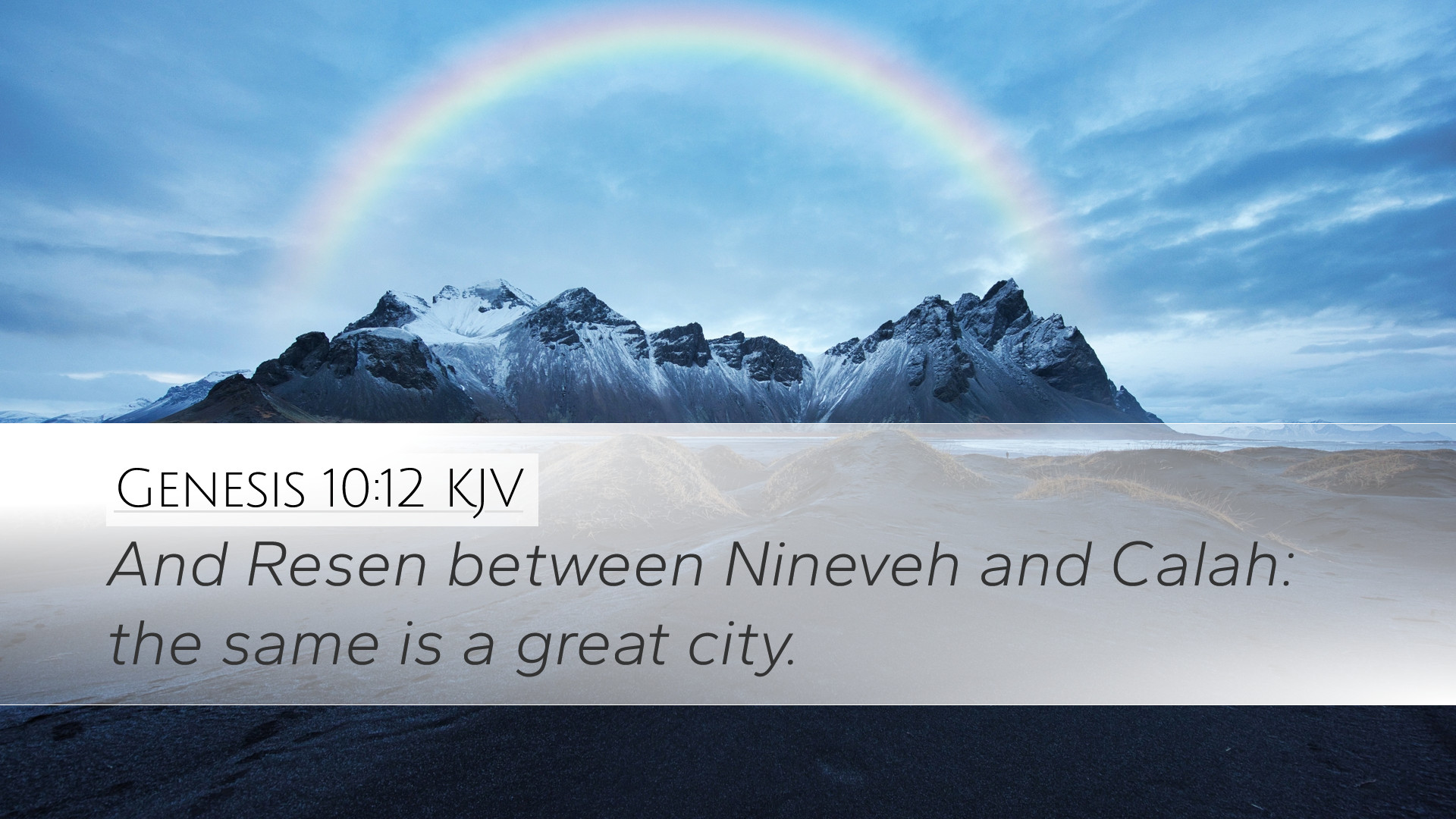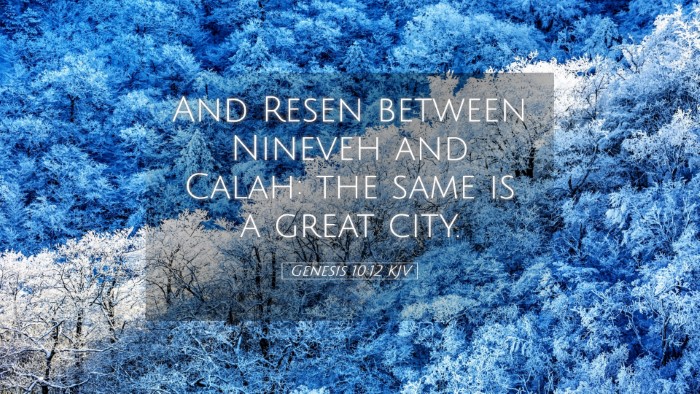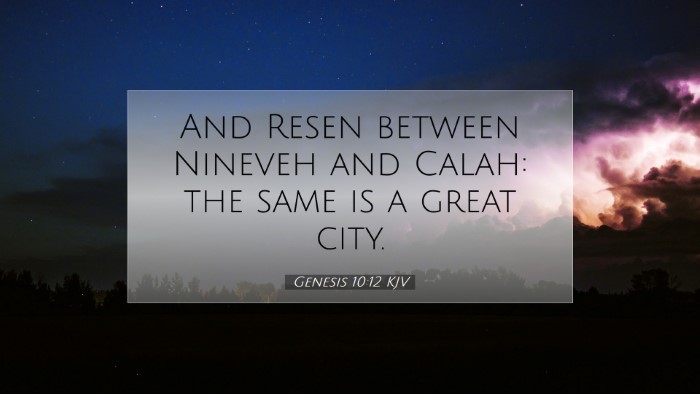Commentary on Genesis 10:12
Verse Analysis: Genesis 10:12 reads, "And Resen between Nineveh and Calah: the same is a great city." This verse is part of the genealogical account of Noah's descendants and serves to illustrate the expansion of nations and cities post-Flood.
Contextual Background
This chapter, known as the Table of Nations, records the descendants of Noah's sons—Shem, Ham, and Japheth. Genesis 10 serves as a crucial historical record, demonstrating God's providential plan for the world after the deluge. The cities mentioned in this context highlight the growth of civilization among Noah's descendants.
Commentary Insights
Matthew Henry's Commentary
Matthew Henry emphasizes the significance of cities in the biblical narrative, noting that they are often centers of culture, trade, and governance. He remarks:
- The Role of Cities: Cities, such as Resen, represent mankind's collective endeavor to build and create civilization following divine judgment.
- Resen's Location: The explicit mention of Resen's location "between Nineveh and Calah" underscores its strategic importance in the ancient Near East. This geographical reference indicates its potential as a hub of activity and influence.
- Divine Sovereignty: Henry reflects on how cities may rise and fall according to God's plan, reminding readers that human pride in civilization should be tempered by humility before God's almighty sovereignty.
Albert Barnes' Notes
Albert Barnes provides additional depth to the understanding of Resen by saying:
- Identifying Resen: Barnes notes that Resen has not been definitively identified among modern archaeological sites, but its mention alongside Nineveh and Calah indicates its prominence in ancient Assyria.
- Cultural Significance: He shares that this region's inhabitants contributed to the cultural and political tapestry of the ancient world, further highlighting the interconnectedness of these cities.
- Historical Context: Barnes also states that the mention of Resen alludes to a time when the descendants of Noah began to consolidate power, establish governance, and build urban centers, a significant step in the development of human society post-Flood.
Adam Clarke's Commentary
Adam Clarke adds a theological dimension to the discussion of Genesis 10:12:
- Historical Development: Clarke speaks to the importance of understanding the geographical and historical context of the cities mentioned in this chapter, as they reflect the broader narrative of human civilization’s progress.
- Moral Lessons: He suggests that the expansion of cities like Resen serves as a reminder of humanity's continuous pursuit of greatness, which is often fraught with moral and ethical challenges.
- Divine Justice: Clarke emphasizes that while cities may embody human achievement, they also stand as examples of divine justice and judgment against the backdrop of human sinfulness, particularly in light of the earlier events surrounding the Flood.
Theological Implications
This verse invites reflection on several theological themes:
- The Sovereignty of God: The establishment of cities and nations illustrates God's control over history and the unfolding of His will through human agency.
- Human Agency and Responsibility: While God is sovereign, the building of cities reveals humanity's active role in shaping the world, encouraging leaders to build wisely and justly.
- Community and Civilization: Resen symbolizes the need for community, as settlements are foundational to social interaction and the formation of societal norms.
Conclusion
Genesis 10:12 serves as a concise yet profound verse that encapsulates the intersection of divine sovereignty and human initiative in the post-Flood world. The city of Resen, and its position between Nineveh and Calah, signifies not only geographic importance but also the rich narrative of God’s dealings with humanity. This commentary draws from the insights of Matthew Henry, Albert Barnes, and Adam Clarke, reinforcing the notion that the biblical narrative provides both historical record and moral lessons for contemporary readers.


